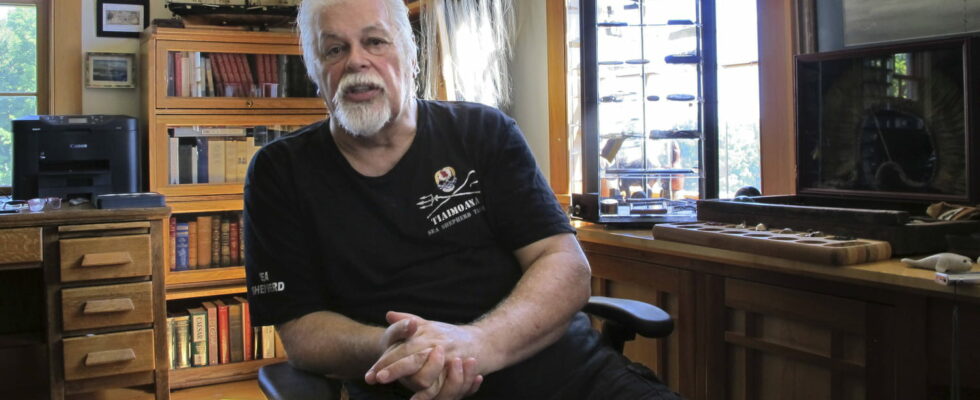Paul Watson has been imprisoned for several months awaiting a decision on his potential extradition to Japan. His prison conditions are difficult.
In detention, Paul Watson awaits the Danish government’s decision on Japan’s request for his extradition for a previous case linked to his fight for whales. The country accuses him of being co-responsible for damage and injuries on a Japanese ship. Statements deemed “fallacious” by the defense. In the event of extradition, his lawyers fear that their client would suffer “inhuman treatment in Japanese jails”, which is what the detainee himself fears, who had indicated to Franceinfo that if he went there, he would “die” there.
The 73-year-old activist was arrested on July 21 in Nuuk while trying to intercept a Japanese whaling factory ship with his boat. The Greenlandic justice system must quickly rule on whether or not to continue in detention of Paul Watson, founder of Sea Shepherd. A new hearing will be held, relating to a third request for release filed by the detainee’s lawyers, while the public prosecutor is requesting an extension of his period behind bars.
Very strict detention conditions
Julie Sage, Paul Watson’s lawyer, deplores the time the procedure takes: “Ultimately, the question of the proportionality of pre-trial detention in relation to the offense will pose a problem.” Same speech from the president of Sea Shepherd France, Lamya Essemlali, as reported The Parisian : “We want the Danish minister to finally make a decision. At the moment, they are letting him languish in prison, it’s frankly problematic.” According to her, Paul Watson is also living in increasingly difficult conditions in prison: “They have almost cut off all contact with the outside world. He is only allowed 10 minutes of telephone time per week with his wife.”
In the cell, Paul Watson does not give up his fight: “If they imagine that this will prevent our opposition! I only changed ships, and my current ship is ‘Prison Nuuk’. The Japanese want me “use it as an example to show that we should not touch their whaling,” he told AFP at the end of the summer.
